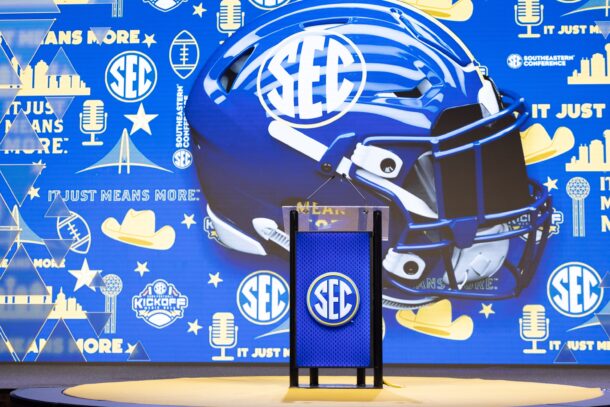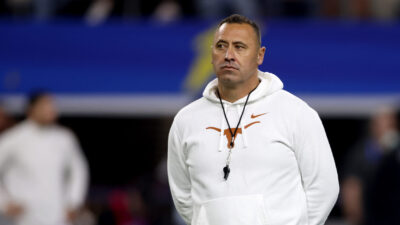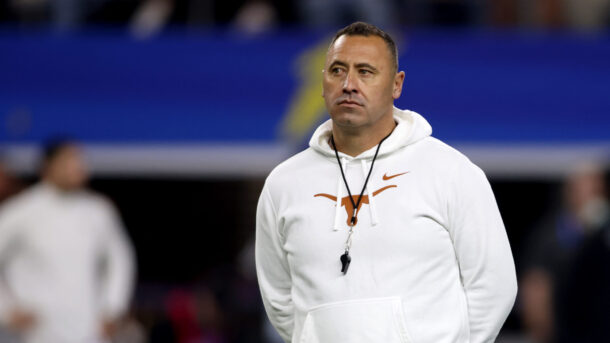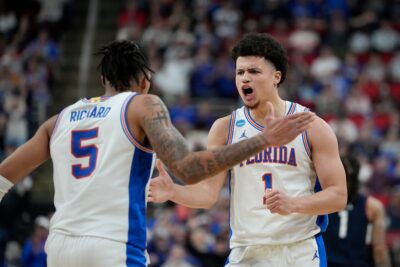Ad Disclosure
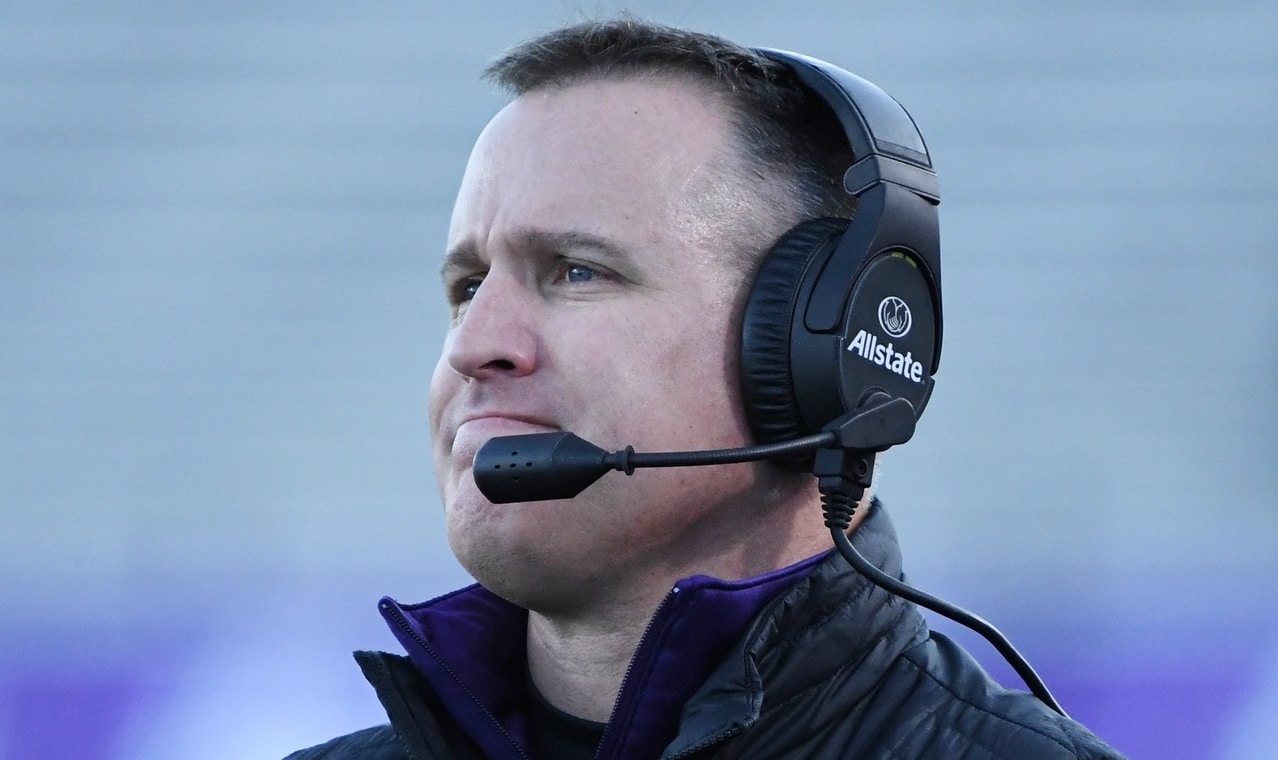
Northwestern just provided the rest of college football the blueprint of what not to do
It wasn’t that long ago that some would’ve pointed to Northwestern as what college athletics should be.
It’s a place where academic standards are actually synonymous with student-athlete life. It had a coach who bled purple perhaps unlike any human on earth.
Alignment? Values? Pride? Northwestern checked all of those boxes.
And now it doesn’t.
Pat Fitzgerald’s firing at Northwestern in the wake of a hazing scandal will go down as one of the most surprising sequence of events that college football has seen in the 21st century. The guy who was either a player or a coach for 13 of the program’s 15 bowl appearance is gone after 17 years on the job.
At seemingly every turn of this strange, snowball-rolling-downhill story, Northwestern showed the rest of America what not to do.
So how can this be a watershed moment? Like, besides the fact that nobody is above a locker room culture that allegedly allowed for “naked sling shots,” as the Northwestern Daily reported.
Well, let’s start with the obvious here. There’s not a chance that Northwestern’s administration thought that a student newspaper would blow the lid of this following the initial 2-week suspension. Clearly, there wasn’t an expectation that this would get worse. Otherwise, Northwestern would have issued a stronger punishment from the jump.
We can’t say that Northwestern didn’t do a thorough investigation. After all, when you hire an independent law firm that then reviews “thousands of documents,” you are, in theory, setting yourself up to have full transparency. The problem was that either the law firm didn’t uncover what the Northwestern student newspaper did, or it did, and the university thought a 2-week punishment in the middle of July would suffice. Both options are misses.
Ideally, when you conduct an investigation of this magnitude, you’re playing offense at every turn. Nothing catches you by surprise. To say that you’re “reevaluating” a punishment at any point is a bad look, much less after its findings come via the student newspaper.
If Northwestern did indeed know what the student newspaper reported and shared its findings from the law firm, it could’ve handed out an in-season suspension and moved on. Sure, it would’ve been an embarrassing loss to take, and Big Ten Media Days at the end of the month wouldn’t have been a picnic, but you could’ve at least gotten out ahead of the message.
Instead, the message has lacked transparency from the start.
Pat Fitzgerald’s firing leaves so many questions that linger around Northwestern. People want to hear from president Michael Schill and AD Derrick Gragg. So far, Gragg has not spoken publicly and Schill has only communicated through letters. No news conferences. Incredible.
— Adam Rittenberg (@ESPNRittenberg) July 11, 2023
Rittenberg also brought up how bizarre it is that Northwestern players found out of the firing from social media, and athletic director Derrick Gragg — not Schill — was available for a brief Zoom meeting.
Sure, communication is tricky when it’s July and everyone is scattered across the country. But surely there’s a better way to relay that message to a group of college kids.
And there’s the other side of this. Say what you want about Fitzgerald in this manner. Put yourself in his shoes. If you were told after an internal investigation that your suspension was 2 weeks and then suddenly you were fired, you’d want to know why a months-long investigation didn’t serve as the deciding factor.
Hence, why Fitzgerald lawyered up following his termination:
Statement attached from former Northwestern coach Pat Fitzgerald to ESPN, which includes that he’s hired a high-profile attorney to “take the necessary steps to protect my rights in accordance with the law.” Fitzgerald: “I was surprised when I learned that the president of… pic.twitter.com/zPNTAkr2xn
— Pete Thamel (@PeteThamel) July 11, 2023
In case you were wondering, Fitzgerald reportedly has about $42 million left on his 10-year, $57 million contract. When you get fired with cause like Fitzgerald was, that money is no longer yours. In other words, this is far from over.
It should, however, serve as a cautionary tale. Maybe coaches at this level aren’t meant to hold a title as long as Fitzgerald did. Based on the findings from Schill’s letter announcing the firing, wherein he outlined that 11 current and former players confirmed that there was hazing in the football program, Fitzgerald operated in his own world. For all the great things he did at Northwestern — there’s zero doubt that he’s the best coach in program history — his tenure ended because he allegedly abused that power.
Anyone in college athletics can abuse power. You don’t have to be a coach approaching 2 decades on the job to bypass basic human rights. If Fitzgerald’s undoing can be something like this, so too can anyone.
If you think Fitzgerald was just on some sort of “last straw” thing because of a rough 2 seasons in Evanston, you’re completely ignoring the impact of someone who led a rise from the ashes both as a player and as a coach. That list of people who can check both of those boxes isn’t long. His legacy is forever changed.
Maybe the response would’ve been different if he and Northwestern’s administration had taken a different approach. If the original punishment had fit the alleged crime, this wouldn’t have looked like a cover-up. What if Northwestern had instead checked all of these boxes instead of playing defense all weekend?
- A thorough investigation from an independent law firm with clear communication about the findings
- A multi-game suspension
- A press conference with Fitzgerald, Schill and Gragg
- Genuine remorse
If those boxes had been checked, you wouldn’t have had the initial bombshell report from The Daily Northwestern. You wouldn’t have had a university president admit he messed up a punishment a day after announcing it. You wouldn’t have had such an uproar from Northwestern players.
Instead, Northwestern opted for the path of least resistance. Or so it thought.
In the end, though, college administrators everywhere can now resist the urge to follow in Northwestern’s footsteps.
Connor O'Gara is the senior national columnist for Saturday Down South. He's a member of the Football Writers Association of America. After spending his entire life living in B1G country, he moved to the South in 2015.
